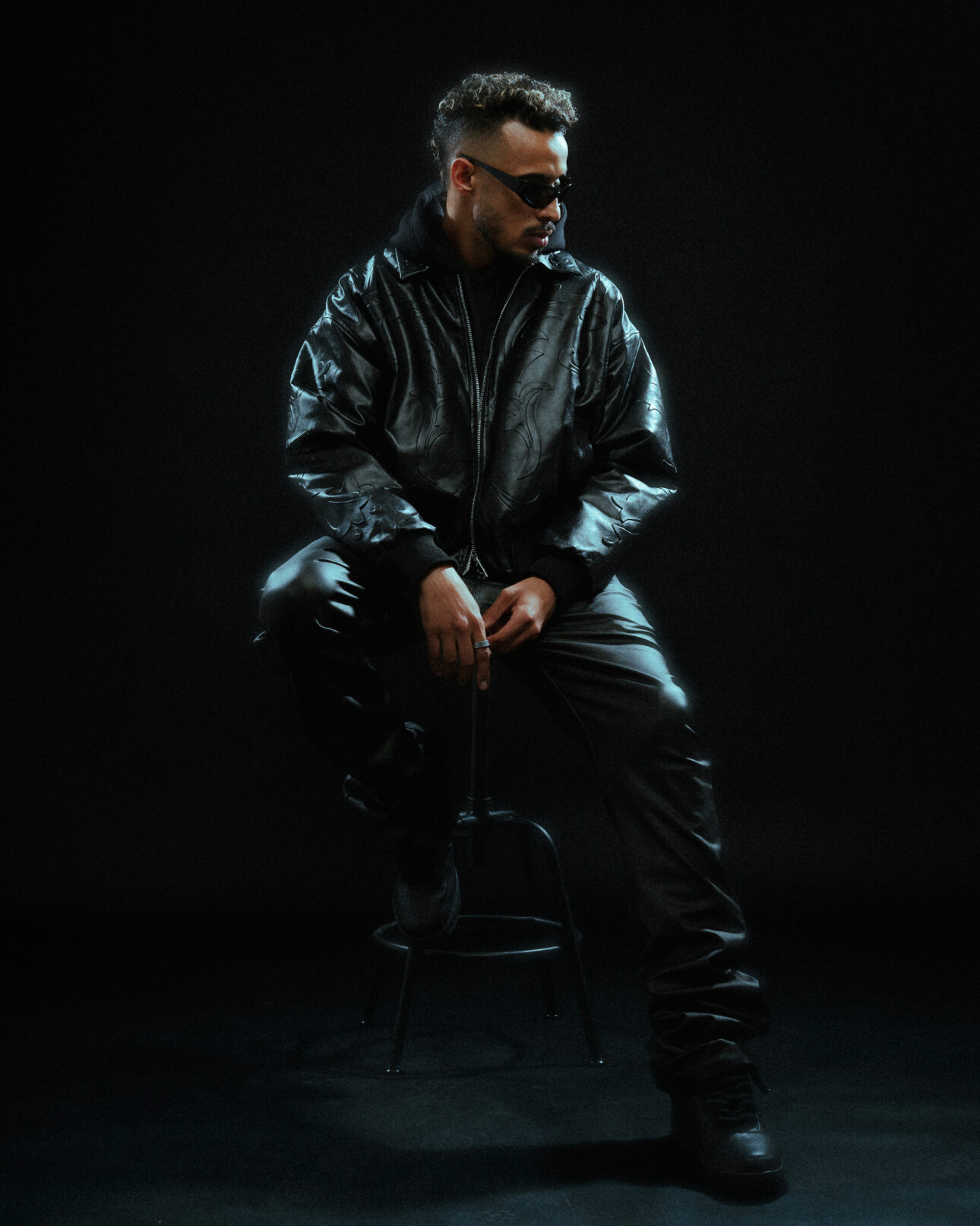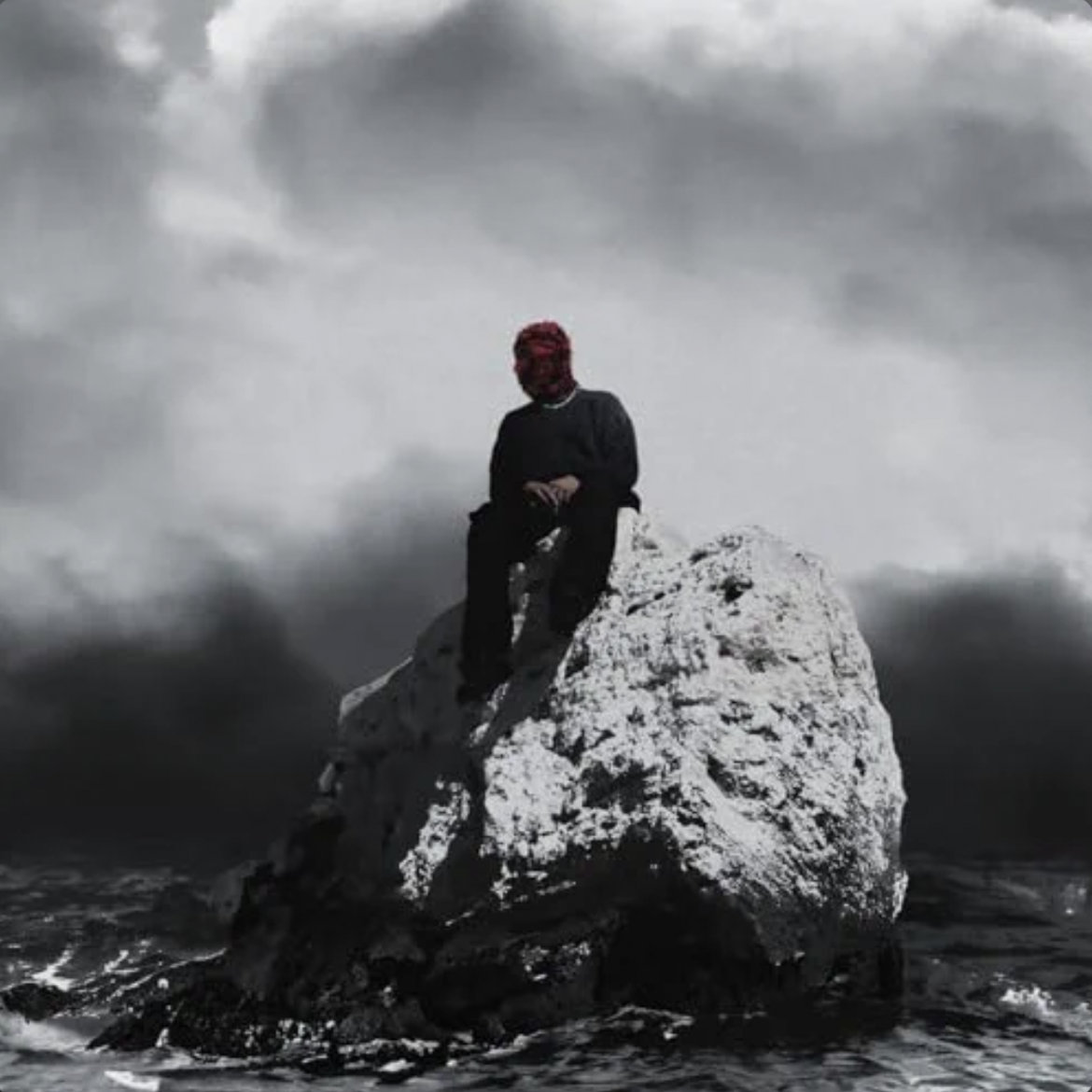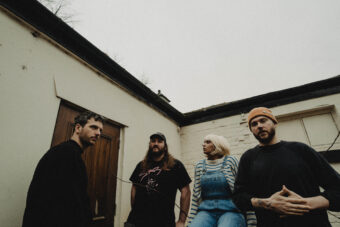The music video for the song “NIKEY” takes place in an unlikely destination for Moroccan rapper Stormy: a small town in the old wild west of 1800s America. Paying homage to film director Quentin Tarantino, Stormy, along with collaborator and fellow Moroccan emcee Dizzy DROS, are dressed in full cowboy attire as they exchange verses and punchlines throughout the song.
From the moment Stormy utters “If you don’t know, now you know” in the first few seconds, he hooks you into an alluring cinematic experience.
Released in February, the video has already racked up over 3 million YouTube views and over 2 million Spotify streams. “To be honest, I did not expect that result,” Stormy shares over Zoom from his home in Rabat, Morocco.

The independently made video was shot in a far suburb of London on a dreary 24-degree day, which the rapper admits was difficult for him, given that he was donned in leather pants in cold weather for the shoot. Still, Stormy had a clear vision for wanting to create an elaborate video for his song.
“I don’t want to make money and do some cheap music videos and stuff, even though I’m not going to make that money back,” he explains. “But for me, I’m satisfying the fan inside me. I want to see a Moroccan rap song with some crazy music videos. Even though people do this with big budgets and big sponsors and stuff, it’s not going to stop us from doing it.”
Stormy, whose real name is Yasser El Malih, has become a force not just in Moroccan rap, but in the regional scene across the Middle East and North Africa. The artist has amassed over 800,000 monthly listeners on Spotify and over 700,000 YouTube subscribers, with sold-out live performances in Morocco and France, among other countries.
The 27-year-old rapper achieved all of this in just four years, culminating in the February release of his first solo studio album, ICEBERG. “Stormy is a very versatile artist in the sense that he delivers different types of flows when a lot of rappers stick to what works for them,” says Tarek El Mendelek, artist manager with regional record label MDLBEAST. “For Moroccan rap, he’s definitely one of the most successful, and he’s integral to the culture.”
Stormy grew up with two older brothers, both of whom first exposed him to music. His eldest brother introduced him to bands like Slipknot and Slayer, while his middle brother—also a rapper—opted to share his love of Moroccan rap and American emcees like Eminem and 50 Cent.
“At first I didn’t want to be an MC because I was listening to metal music and grunge music with my older brother,” Stormy admits. “So I was kind of stuck between the two, and I had to make a choice [between metal and rap].” Opting to stick with rap, Stormy became enamored with Jay-Z and Nas for their lyrical flows, though he candidly shares that he did not understand them at the time because of his limited English.
Despite the language barrier, those artists’ confidence and swagger, and the vibe of their music, still spoke to him. Even after he improved his English, Stormy gained a deeper appreciation for these rap icons once he understood their lyrics.
That affinity for meaningful wordplay in hip-hop has had a lasting impact on his own music. While many of his peers focus heavily on catchy melodies and adhere to certain timely trends, Stormy focuses on the very essence of rap music. “For me, what’s more important is the lyrics because you can listen to the lyrics and it still gives you a meaning,” Stormy passionately explains. “People right now go back and listen to Tupac songs and Biggie songs, but no one listens to the 2017 music, even though it’s more recent.”
As a teenager, Stormy would release freestyles on YouTube, anxiously awaiting feedback from listeners so he could continue improving his lyrical delivery. When discussing this era in his life, he pauses slightly before vulnerably reflecting on his early career.
“I want to make mistakes,” Stormy starts to share. “I want to do stuff the bad way. Even with my brother, he’s always going to tell me ‘that’s good’ because he’s my brother. But I was learning [how to rap]. I used to release songs, and I used to see the feedback, like, two or three days after the release, and I used to go back to the studio and work on that. I didn’t wait for that song to do some crazy numbers. I only waited for people to give me their feedback.”

A few years later in 2019, Stormy met his current manager—also his main producer and frequent collaborator—and released the song “RRR3D,” an aggressive trap diss track toward a more popular Moroccan artist at the time, gaining wider attention in the regional rap scene.
His breakout came with “Fratello,” a made-for-summer that saw Stormy as a feature artist collaborating with juggernaut Moroccan rappers Tagne and Khtek. After a string of tracks, Stormy worked again with Tagne for the 2021 collaboration Jackpot, which earned acclaim but still not as a solo artist.
For Stormy, in the years leading up to ICEBERG’s release, he was acutely aware of bucking the trend around him to create a meaningful album.
“I saw a lot of artists do music for TikTok—from a fan perspective, I don’t like that,” Stormy says bluntly. “I learned that a classic project or a classic album is not always about numbers. It’s about the music itself. And it’s about what you have to offer that no one else before you offered.”
That mentality paid off, with ICEBERG debuting at No. 6 on Spotify’s Global Debut Album chart, and reaching 10 million streams on the platform in just 15 days. As of this writing, the album’s first single, “POPO,” a rhythmic Brazilian funk track taking aim at police, has gained over 5 million streams on Spotify, with the accompanying video—aptly filmed in Brazil—viewed over 12 million times.
“His unflinching honesty, combined with a sharp flow in Darija [Moroccan Arabic] and French, has earned him a deeply dedicated fan base and success that knows no borders,” says Menna Shanab, music journalist based in Egypt who covers the regional scene. “His success proves North African artists can find a global audience.”
Stormy stresses he does not want to be the next “insert-American-rapper-here” but rather the first Stormy. He wants to be a beacon for Moroccan hip-hop, not just for the country but beyond its borders, attracting a global audience to Moroccan culture.
“I want to make Moroccan rap, African music, Arab music—all this. I want to push this to a bigger level,” the rapper says. “But for me before, as an artist, as a human being, I don’t want to stress myself. I love to do all of this in a natural way because, in my opinion, I don’t like pushed things. I love to attract, not to chase.”




